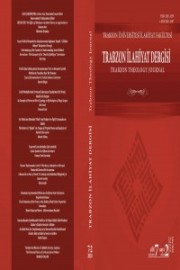Sosyo-Politik Rivâyetlerin Anlaşılmasında Bağlamın Tespiti -“Câhiliye Ölümü” Rivâyetleri Örneği
Determining of the Context in Understanding Socio-Political Narrations - The Example of the “Death of Jāhiliyya” Narrations
Author(s): İsa OnaySubject(s): Islam studies, Politics and religion, Sociology of Culture, Sociology of Politics, History of Religion
Published by: Karadeniz Teknik Üniversites - İlahiyat Fakültesi
Keywords: Hadith; Context; Obedience; Sultan (Head of State); Community;
Summary/Abstract: Hadiths have been the subject of various approaches in terms of detection and evaluation criteria. In addition to what these criteria are and whether they are applied or how they should be applied, the problem of subjectivity has an important effect on the acceptance / rejection and understanding of the narrations. Having information about the socio-cultural environment will contribute to the determination and understanding of a narration according to the Quran, sound sunnah, history, and rational criteria. Especially, knowing of the vurûd reason in the sciences of dirâyatü'l-hadith is one of the primary issues in terms of understanding the narrations. In cases where it is not possible to determine of the vurûd reason, the subject integrity of the narration and the concepts related to the socio-cultural context are important. The aim of this study is to determine which element or elements in religious terminology the theme of "death of Jāhiliyya" correspond to, and providing that the opportunity to read by taking into account the context and subject integrity in which the musannifs evaluate the hadiths and understanding the message by determining the essence of the narration. This research was based on the Qutib-i Sitte narrations, but no sanad analysis was made for the narrations. In the study, without giving place to disputes, the fiqh dimension of the narrations and the caliphate were evaluated within the framework of traditional hadith interpretation which the dimensions of allegiance, bagy and opposition to the head of state (hurûc). As a result, it is understood that the narrations, which are apparently thought to be related to blasphemy and shirk, are actually related to the socio-political sphere, based on the study style of musannifs and commentaries.
Journal: Trabzon İlahiyat Dergisi
- Issue Year: 7/2020
- Issue No: 2
- Page Range: 47-86
- Page Count: 40
- Language: Turkish

